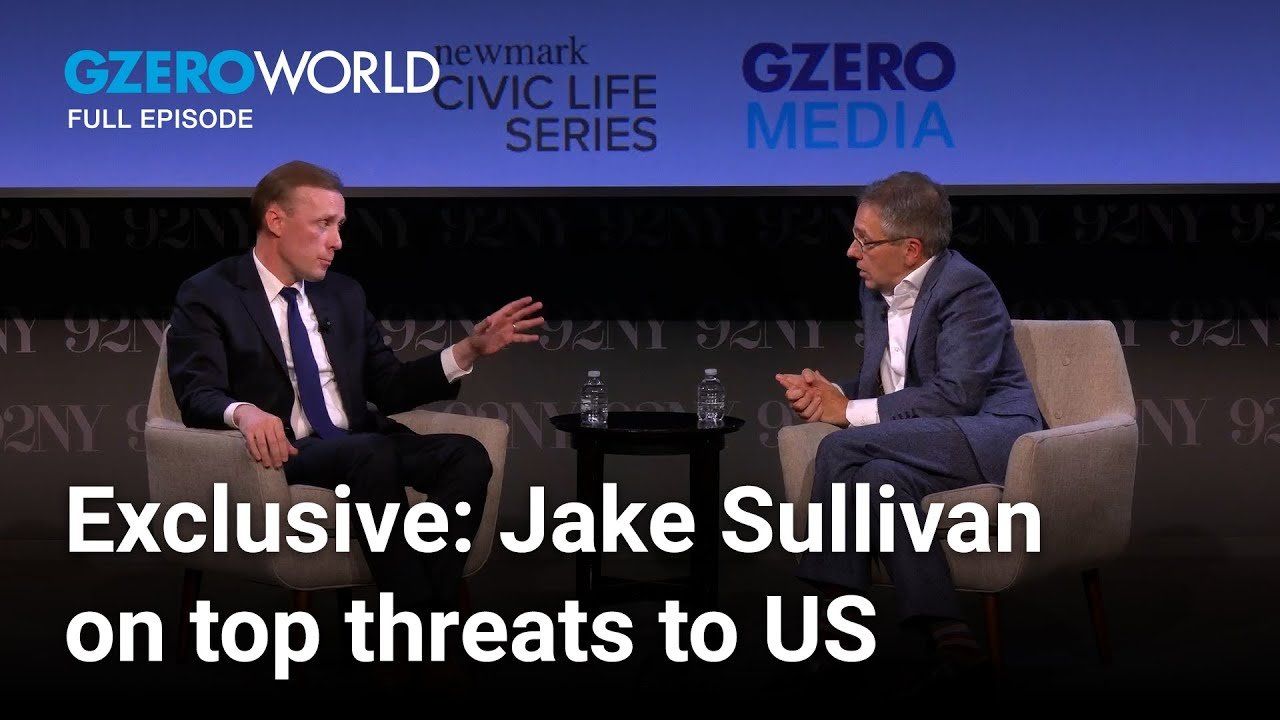
From Russia to China to the Middle East, what are the biggest threats facing the US? On GZERO World, outgoing National Security Advisor Jake Sullivan joins Ian Bremmer in front of a live audience at the 92nd Street Y in New York City for a wide-ranging conversation on America’s view of the world, President Joe Biden’s foreign policy legacy, and how much will (or won’t) change when the Trump administration takes office in 2025. Despite major differences between the two administrations, Sullivan says he’s seen “more alignment” with his successor Mike Waltz than he expected and that they agree on “big ticket items” like making sure US adversaries don’t take advantage of the US during the presidential transition. Reflecting on his time and office and how the global threat environment has changed, Sullivan digs into risks and opportunities in Syria, the US-Israel relationship, China’s global ambitions, and Putin’s miscalculations in Ukraine.
“The Cold War era is over. There's a competition underway for what comes next. It is challenging. It is at times turbulent,” Sullivan warns, “What the United States has to do is try to strengthen its fundamental hands so it can deal with whatever comes next and there will be surprises.
GZERO World with Ian Bremmer, the award-winning weekly global affairs series, airs nationwide on US public television stations (check local listings).
New digital episodes of GZERO World are released every Monday on YouTube. Don't miss an episode: subscribe to GZERO's YouTube channel and turn on notifications (🔔).
- How Trump 2.0 could reshape US foreign policy, with the New York Times' David Sanger ›
- US and China set up back-channel meetings as pressure over Yemen grows ›
- Sullivan trip sets up Biden-Xi call ›
- Putin isn't winning in Ukraine, says US National Security Advisor Jake Sullivan ›
- EXCLUSIVE: An Interview with outgoing US National Security Adviser Jake Sullivan ›